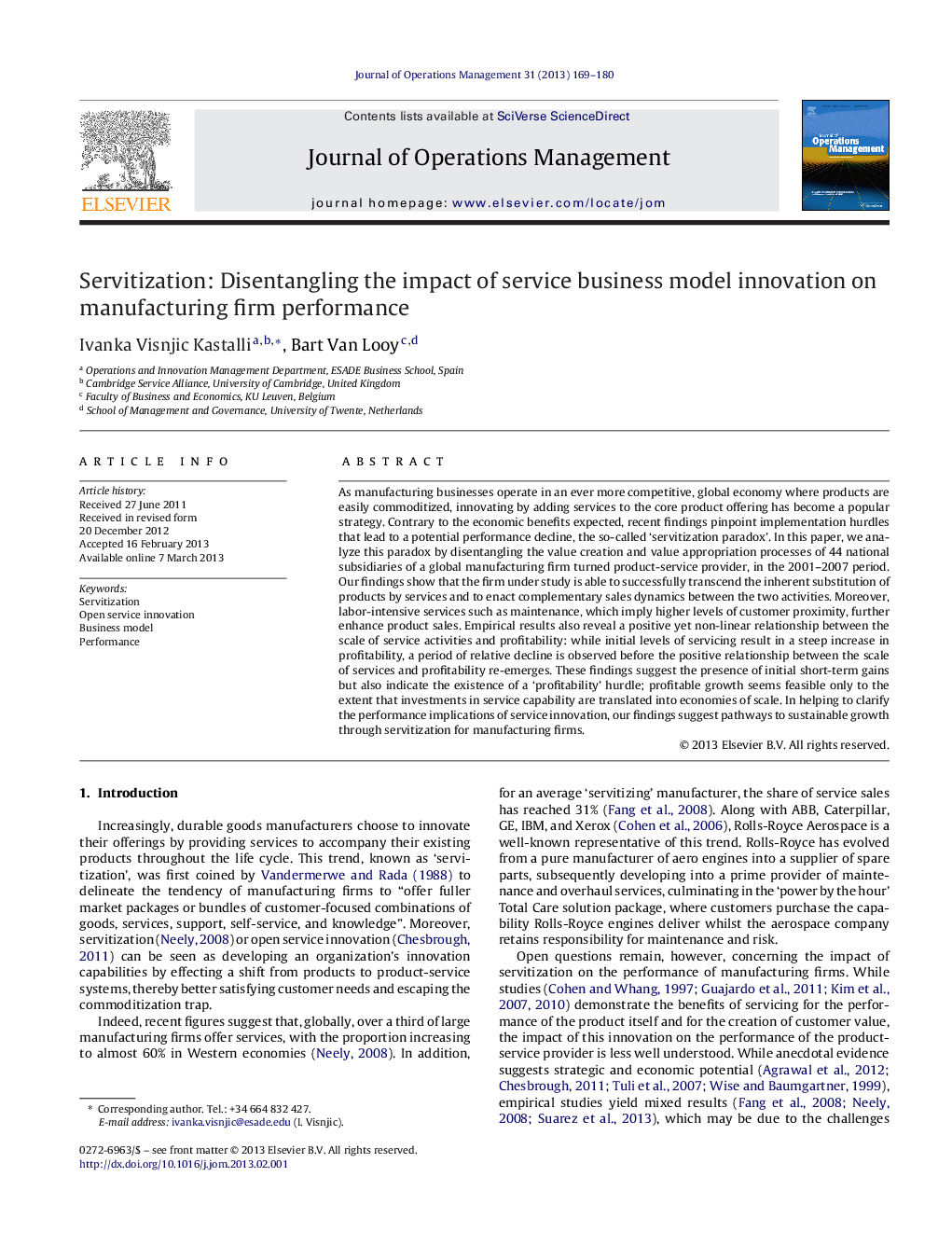| Article ID | Journal | Published Year | Pages | File Type |
|---|---|---|---|---|
| 1031763 | Journal of Operations Management | 2013 | 12 Pages |
As manufacturing businesses operate in an ever more competitive, global economy where products are easily commoditized, innovating by adding services to the core product offering has become a popular strategy. Contrary to the economic benefits expected, recent findings pinpoint implementation hurdles that lead to a potential performance decline, the so-called ‘servitization paradox’. In this paper, we analyze this paradox by disentangling the value creation and value appropriation processes of 44 national subsidiaries of a global manufacturing firm turned product-service provider, in the 2001–2007 period. Our findings show that the firm under study is able to successfully transcend the inherent substitution of products by services and to enact complementary sales dynamics between the two activities. Moreover, labor-intensive services such as maintenance, which imply higher levels of customer proximity, further enhance product sales. Empirical results also reveal a positive yet non-linear relationship between the scale of service activities and profitability: while initial levels of servicing result in a steep increase in profitability, a period of relative decline is observed before the positive relationship between the scale of services and profitability re-emerges. These findings suggest the presence of initial short-term gains but also indicate the existence of a ‘profitability’ hurdle; profitable growth seems feasible only to the extent that investments in service capability are translated into economies of scale. In helping to clarify the performance implications of service innovation, our findings suggest pathways to sustainable growth through servitization for manufacturing firms.
